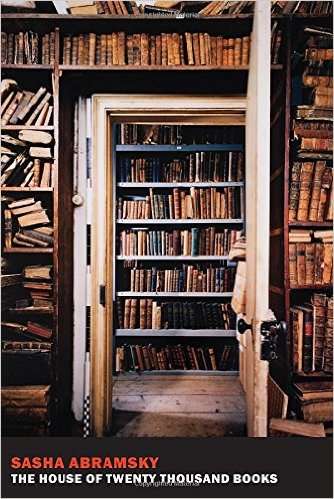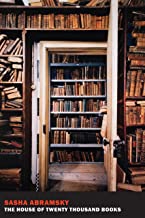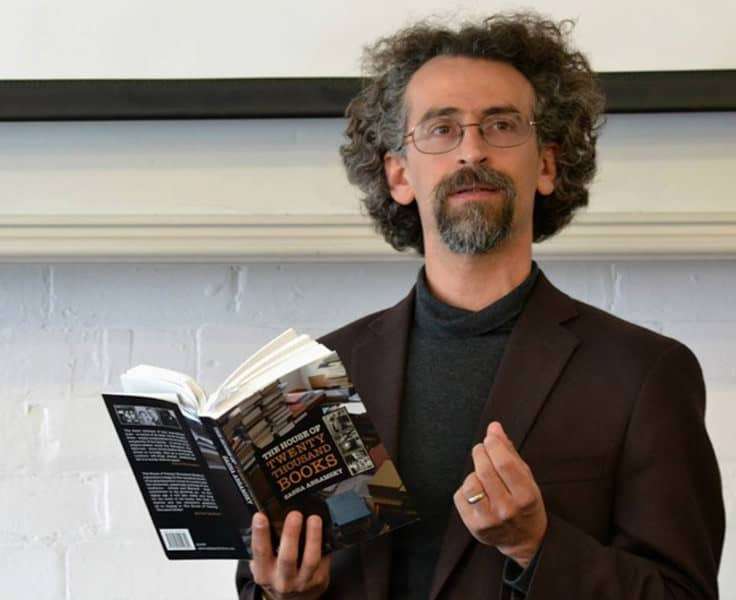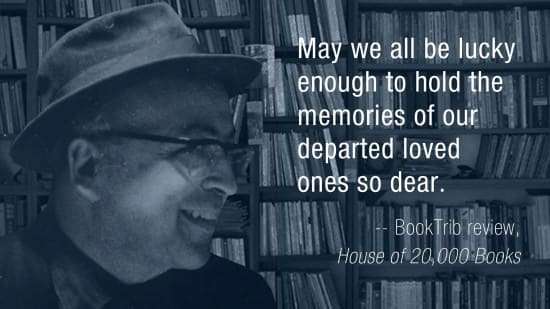The House of Twenty Thousand Books by Sasha Abramsky
 In The House of Twenty Thousand Books (New York Review Books, September 1, 2015) this is the journey taken by Sasha Abramsky, whose family was tasked with the job of cleaning out a houseful of books upon his grandfather’s death. His grandfather was no ordinary book collector. The co-owner with his wife Miriam of a London East End bookstore, Chimen Abramsky was an expert on Jewish and socialist texts, a Communist who had become an outspoken critic of the Soviet Union, and a professor of both Jewish and Soviet studies.
In The House of Twenty Thousand Books (New York Review Books, September 1, 2015) this is the journey taken by Sasha Abramsky, whose family was tasked with the job of cleaning out a houseful of books upon his grandfather’s death. His grandfather was no ordinary book collector. The co-owner with his wife Miriam of a London East End bookstore, Chimen Abramsky was an expert on Jewish and socialist texts, a Communist who had become an outspoken critic of the Soviet Union, and a professor of both Jewish and Soviet studies.
Most notably, he was a collector of books. And he had amassed in his home a collection of books numbering…well, the book’s title says it all.
“Even leaving aside the quality, the rarity of these books, many of them hundreds of years old, their sheer physical presence was overwhelming,” Sasha writes. “If each book weighed, on average, a pound—a fair estimate, given that many were slim little volumes just a few ounces in weight, while others were huge tomes weighing ten pounds—then at a conservative guess the house contained upwards of ten tons of books, the weight of at least five large cars.”
At first, Sasha’s foray into Chimen’s collection was a way to remember his grandfather. “I would take out an old book, smell it, touch it, examine its publication date, reacquaint myself with it as an old friend,” he writes. “During those sad hours, I looked for particular books that we had been introduced to in happier years, or particular authors whose importance Chimen had hammered into our heads . . . And I remembered conversations from decades earlier, the conversations that in so many ways had formed the basis for my intellectual identity.”
It’s through this extraordinary book collection that Sasha is able to tell his grandfather’s remarkable life story; the story of a powerful intellect deeply immersed in the political streams and eddies of the 20th century. “Chimen was like a character out of an Issac Bashevis Singer story, or an antiquarian out of a Dickens novel, or an eccentric 18th-century Salon host, or more accurately, a chimera of them all,” Sasha writes. “It was impossible to pigeon-hole him: Too many stories flowed through him simultaneously.”
The House of Twenty Thousand Books is, itself, several books at once. It’s part history of the 20th century told from a singular point of view: a man described in an article for the Huffington Post by Occidental College Professor Peter Dreier (a former student of Chimen’s) as “the son of a prominent rabbi, an immigrant from Russia, a bookseller, a self-taught scholar, a political activist, an expert on Jewish history and an expert on Marx and Marxism.” The book is part biography of this notable man and the ideas to which he devoted his life. And it’s part memoir of the grandson who explored his grandfather’s life through his astounding collection.
“It was, quite simply, a magnificent intellectual exercise,” Sasha writes about the collection, which he said was “both a working library that Chimen could access while researching his essays and books, and also a work of love, of respect for the past, preserving the memories and ideas of men and women now long dead, their worlds as vanished as their voices, their smiles, their bodies.”
The exploration of the collection also provided Sasha with a way to preserve the memories of his cherished grandparents. “How lucky you were,” a friend tells Sasha in The House of Twenty Thousand Books. “Most kids regard their parents as burdens, as old-timers to be endured . . . but certainly not to be emulated or considered part of one’s daily life. To you, your grandfather was your hero.”
May we all be lucky enough to hold the memories of our departed loved ones so dear.
Buy this Book!
Amazon






